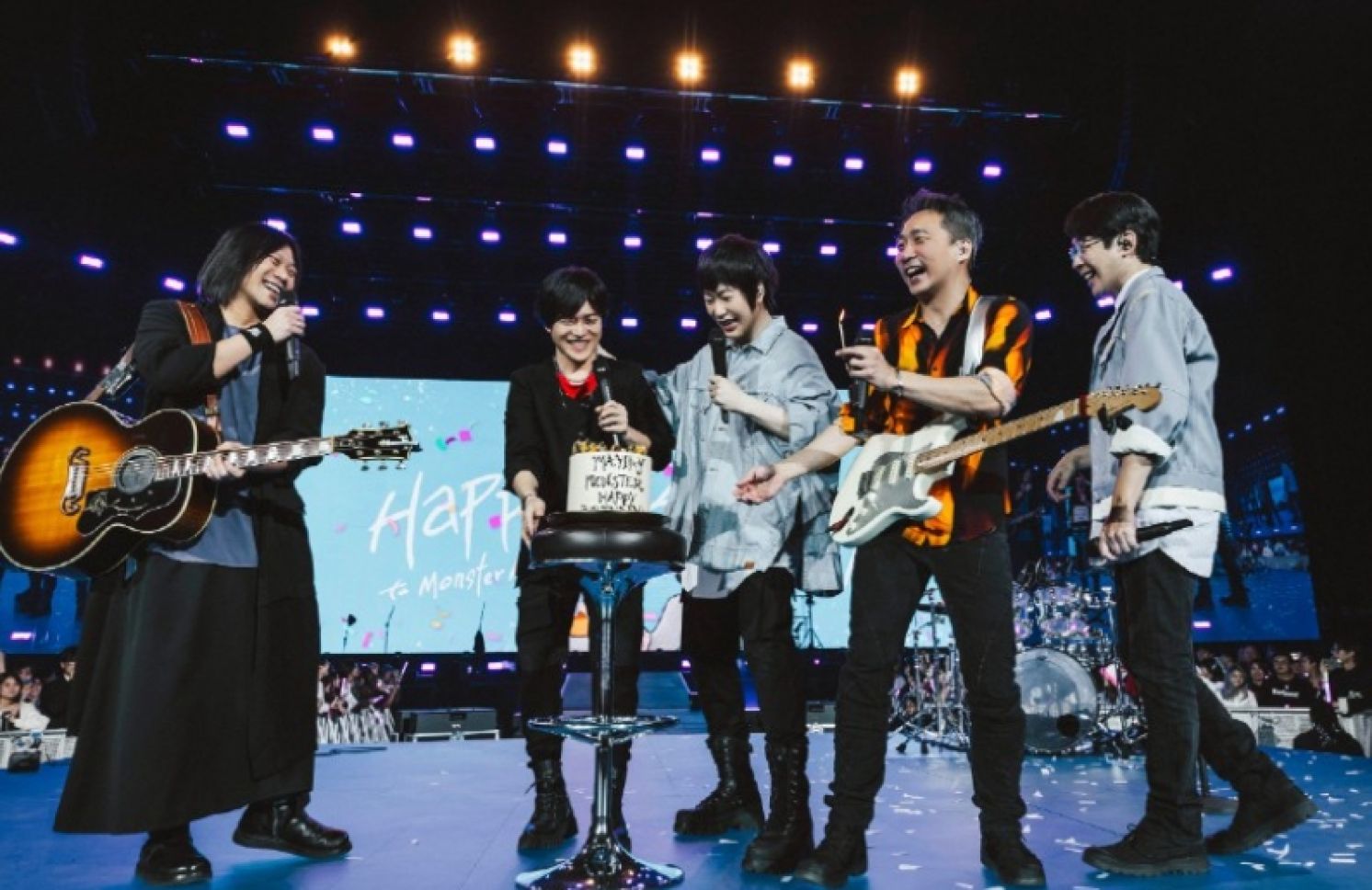
Mayday Not Chou Tzu-yu
The Storm Media Editorial, December 29, 2023
Two weeks before the election, Reuters reported that the Taiwanese band Mayday had received "political pressure" from mainland China to publicly express support for "One China." The situation resembles the "Chou Tzu-yu incident" eight years ago. All three presidential candidates have issued statements condemning such an action. However, the Taiwan Affairs Office (TAO) of mainland China’s State Council immediately denied it, calling the report "completely groundless" and "a malicious political maneuver."
The "Chou Tzu-yu incident" originated from Chou stating on a Korean show that she was from Taiwan and even raising the flag of the Republic of China. Entertainer Huang An criticized her as a "Taiwanese independence supporter" on Weibo, leading Chinese netizens to attack. Just before the presidential election, JYP Entertainment, Chou's agency, released a video of her apology, shocking Taiwan's political scene and further damaging the KMT’s electoral prospects.
The significant difference between this "Mayday incident" and that of Chou Yzu-yu lies in the fact pressure towards Mayday is only not proven. Mayday, as the top pop group for twenty years, stands out from other artists and groups who interact across the strait by deliberately staying out of politics, and focusing on making music. They have become a symbol of the memories of a generation in mainland China, and their music is featured in numerous films and television series as the anthem of youth. Before the pandemic, the annual "May Appointment" with mainland fans was a highly anticipated event. After the pandemic, Mayday's tour in the mainland kicked off with 38 shows. Two years ago, the mainland’s Ministry of Culture and Tourism issued a "ban on lip-syncing," with penalties for violators, putting Mayday in the midst of a lip-syncing controversy.
However, Mayday wasn't caught by regulatory personnel; instead, fans on Weibo exposed them, pointing out at least five instances of lip-syncing through comparison. Mayday's management company vehemently denied any lip-syncing. To prove their authenticity, Mayday's Paris tour was entirely live-streamed online. Ironically, the Beijing Cultural Market Comprehensive Law Enforcement Corps responded, "We will record the situation and make judgments accordingly. If it involves subsequent investigations, the results will be announced on official platforms." It’s ridiculous that fans suspect that Mayday was lip-syncing because their pitch was too perfect. After all, genuine singing doesn't mean the artist will go off-pitch in every song. Whether there was lip-syncing or not is now under investigation by the "law enforcement team," an absurdity that goes beyond the understanding of Taiwanese people. Months have passed, and no results have been announced, making it utterly ridiculous.
In all this absurdity, the report that Mayday is "suspected of being pressured" comes from a "Taiwanese national security memorandum." It cites information gathered by "Taiwanese authorities" on "Chinese government activities." The two anonymous "Taiwanese security officials" provided their perspectives to foreign media. Both Reuters and CNN reported similarly, stating they could not verify the accuracy of this information, considering it "balanced reporting."
This is a typical example of the administration of President Tsai Ing-wen’s strategic "exports for domestic consumption." All plot details come from "security agencies," but no one knows whether it is the National Security Bureau, Military Intelligence Bureau, or Investigation Bureau. Naturally, no one questions these three bureaus’ abilities to "collect on-site intelligence" in China. Still, it aligns with the Tsai administration’s narrative that China is conducting a campaign of "internal propaganda and perception warfare" to interfere with elections.
Reuters also cited an unnamed Taiwanese official stating, "Chinese authorities believe that pressuring Mayday to make a statement can 'influence the votes of young people in Taiwan.'" If there is such an "official," they are undoubtedly an unqualified intelligence officer because such pressure from China will only provoke resentment among Taiwanese people. The effect on the election will be a move toward disliking Beijing, especially after the "Chou Tzu-yu incident." If the Chinese authorities act as foolishly as Huang An, Taiwan can be at ease.
Similar to the grand campaign of the Ministry of Justice in using the Anti-Infiltration Act to investigate village chiefs who visited mainland China, the number of cases soared from 17 involving 29 people to 77 involving 157 people within two weeks. The prosecutors were pleased with their work performance, unaware of the deepening public resentment of such actions. The foolish one is not the "Beijing authorities" but the "Taipei authorities."
How will the Mayday incident develop? First, if Mayday clarifies that it wasn’t politically pressured, it indicates serious issues with Taiwan's intelligence. Second, if Mayday clarifies that it was truly pressured, it means that the TAO is openly lying. This scenario risks offending either Beijing or Taipei, which is inconsistent with Mayday's non-political music-focused approach, making both scenarios unlikely. Third, if Mayday chooses to ignore political matters and continues its global tour, the incident will be forgotten once the election is over, but the aftermath is that Taiwanese people become increasingly numb to the so-called "China interference." Even if the "wolf really comes" one day, no one would notice it.
In fact, the current situation is almost comical. The government's long-running deception has made the public immune. In this regard, the two so-called national security (intelligence) officials who leaked the "security memorandum" to foreign media should be thoroughly investigated and penalized.